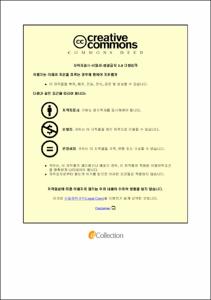뮌헨회담의 교훈과 북한의 비핵화
- Alternative Title
- Lessons of the Munich Talks and North Korea's Denuclearization
- Abstract
- In international relations, the Lesson of Munich refers to the appeasement of Adolf Hitler at the Munich Conference in September 1938. In order to avoid war, France and Britain permitted the German annexation of the Sudetenland. The policy of appeasement underestimated Hitler’s ambitions and believed sufficient concessions would secure a lasting peace. Today, it is widely regarded as a failed act of appeasement toward Germany, and a huge diplomatic triumph for Hitler. The agreement facilitated the German takeover of Czechoslovakia, and caused Hitler to believe the Western allies would not risk war over Poland the following year.
The foreign policy of the British Prime Minister Neville Chamberlain has become inextricably linked with the events of the Munich Crisis and the policy of appeasement, resonating through the following decades as a parable of diplomatic failure. The Munich Conference has come to signify a disastrous diplomatic outcome. The Lessons of Munich have profoundly shaped Western foreign policy up to this day. In the United States, Presidents have cited these lessons as justifications for war in Korea. Although appeasement - conventionally defined as the act of satisfying grievances through concessions, with the aim of avoiding war - was once regarded as an effective and honourable strategy of foreign policy, following the Munich Conference it came to symbolize cowardice, failure, and weakness with Winston Churchill describing appeasement as “one who feeds a crocodile, hoping it will eat him last.”
The policies have been the subject of intense debate ever since. The historians' assessments have ranged from condemnation for allowing Adolf Hitler's Germany to grow too strong, to the judgment that Germany was so strong that it might well win a war and that postponement of a showdown was in their country's best interests.
This paper's purpose is to study how we can apply the Lesson of Munich to North Korea's denuclearization process. There is not a "genuine peace" in the Korean Peninsula because North Korea possesses nuclear weapons.
Keywords : the Lesson of Munich, the Munich Conference, the German annexation of the Sudetenland, the policy of appeasement, "genuine peace", North Korea's denuclearization
- Issued Date
- 2020
- Awarded Date
- 2020. 2
- Type
- Dissertation
- Publisher
- 부경대학교
- Alternative Author(s)
- Myunghee Kim
- Affiliation
- 부경대학교 글로벌정책대학원
- Department
- 글로벌정책대학원 국제학과
- Advisor
- 김동수
- Table Of Contents
- Ⅰ. 서 론 1
1. 연구의 목적 1
2. 문헌연구 3
3. 연구의 범위와 방법 6
Ⅱ. 이론적 틀 9
1. 이상주의와 현실주의 9
2. 유화정책 13
Ⅲ. 뮌헨회담의 교훈 19
1. 뮌헨회담 19
2. 뮌헨회담의 교훈 22
Ⅳ. 한국정부의 대북 유화정책 26
1. 김대중-노무현 정부의 대북유화정책 26
2. 문재인 정부의 대북유화정책 28
3. 유화정책에 대한 북한의 반응 29
Ⅴ. 결 론 33
참고문헌 35
- Degree
- Master
- Files in This Item:
-
-
Download
 뮌헨회담의 교훈과 북한의 비핵화.pdf
기타 데이터 / 581.78 kB / Adobe PDF
뮌헨회담의 교훈과 북한의 비핵화.pdf
기타 데이터 / 581.78 kB / Adobe PDF
-
Items in Repository are protected by copyright, with all rights reserved, unless otherwise indicated.